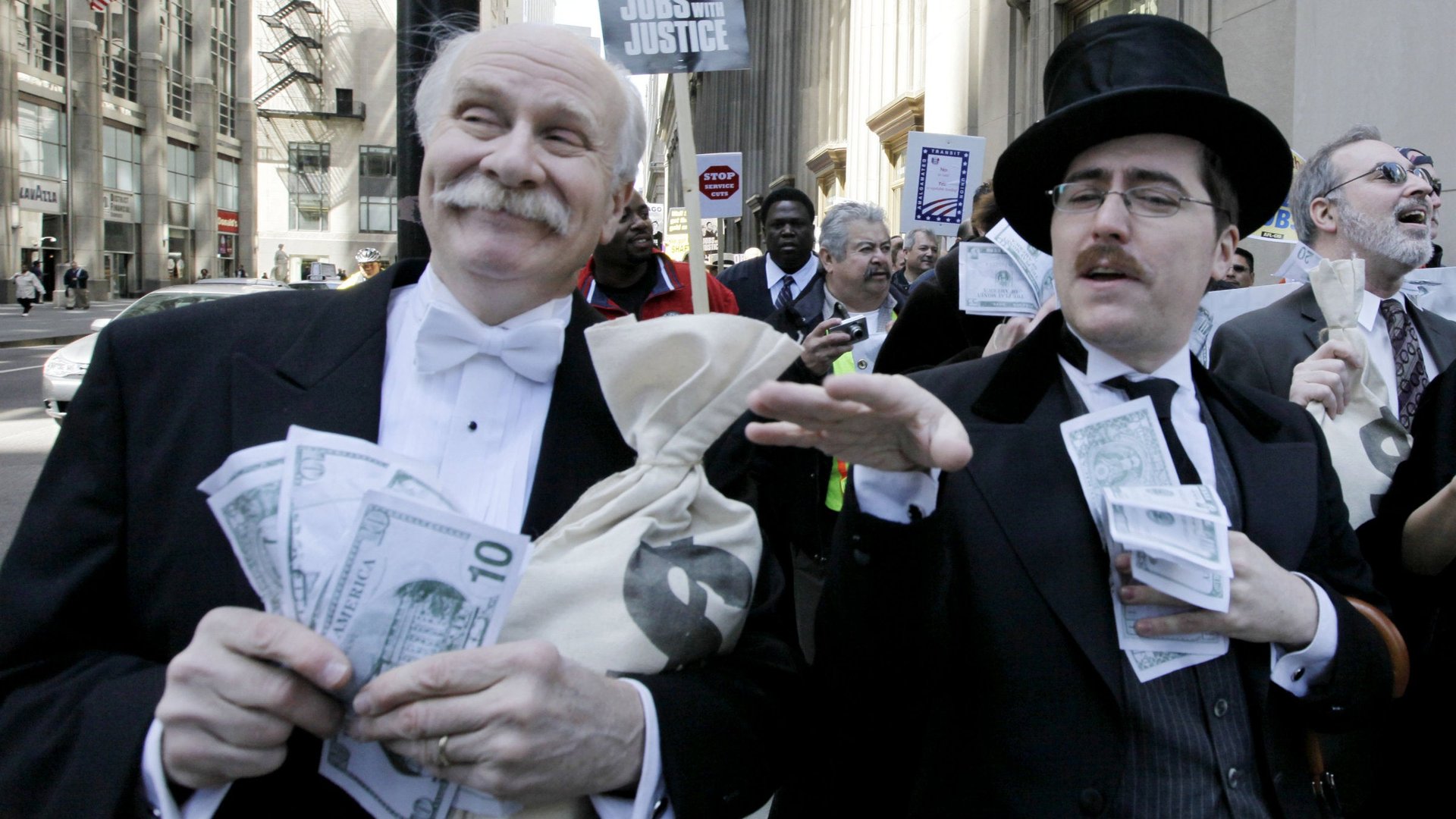Big banks just set aside $15 billion for legal defense instead of boosting the economy
These days, it can seem like big banks are more preoccupied with negotiating legal settlements and defending themselves against wrongdoing than, you know, banking.


These days, it can seem like big banks are more preoccupied with negotiating legal settlements and defending themselves against wrongdoing than, you know, banking.
JPMorgan set aside $1.1 billion to cover potential litigation costs in its most recent quarterly results, but in a new filing it says that the ultimate cost of its many legal entanglements could be as much as $5.9 billion. It’s a similar story at Credit Suisse, which put away more than $400 million in legal provisions in its latest quarter, but sees a potential bill of some $1.2 billion if things don’t go its way. (The eventual costs could also be lower than the third-quarter charges suggest, but that requires a rather optimistic reading of the novella-length legal disclosures in banks’ earnings reports.)
All of the time and money tied up in litigation are resources that cannot be used to support the actual business of banking: extending credit to borrowers and giving advice to businesses that need it. This would be irritating if the global economy was in good shape, but given the world’s fragile state, the enormous resources devoted to legal defense are downright depressing.

No two banks report their legal provisions in the same way, but a conservative reading by Quartz of 10 big banks’ third-quarter financial reports suggests that the lenders took a collective charge worth more than $15 billion in the period to cover litigation costs (see chart). That’s on top of the tens of billions they have already burned in previous quarters. And as the banks like JPMorgan and Credit Suisse warn, the final bill could be even higher.
Some of the alleged malfeasance is recent while other missteps date back to before the financial crisis. Here are a few of the recent lowlights:
- A long-running US lawsuit over toxic mortgage-backed securities cost Bank of America $4.9 billion of its $5.3 billion in third-quarter legal charges.
- Mis-sold insurance policies in the UK saddled RBS with a $160 million over the same period.
- Standard Chartered may face more fines, on top of nearly $1 billion to date, for breaking US sanctions, according to reports.
- Fiddling interbank interest rates—namely, Libor—has cost banks more than $6 billion in penalties to date, including a handful of recent criminal charges.
Along similar lines to the Libor case, financial authorities are investigating whether traders were manipulating foreign-exchange rates; the UK’s financial watchdog is reportedly close to a £2 billion settlement with six big banks over currency rigging. Citigroup’s hasty addition of $600 million to its legal reserves last week is probably related to this investigation, while HSBC, Barclays, and RBS set aside some $1.8 billion in the third quarter specifically earmarked for the probe.
If the foreign-exchange investigation follows the usual script, the eventual penalties from American authorities will be much harsher than what’s meted out elsewhere. So don’t be surprised if vast sums continue to flow not from banks to borrowers, but instead to their lawyers.